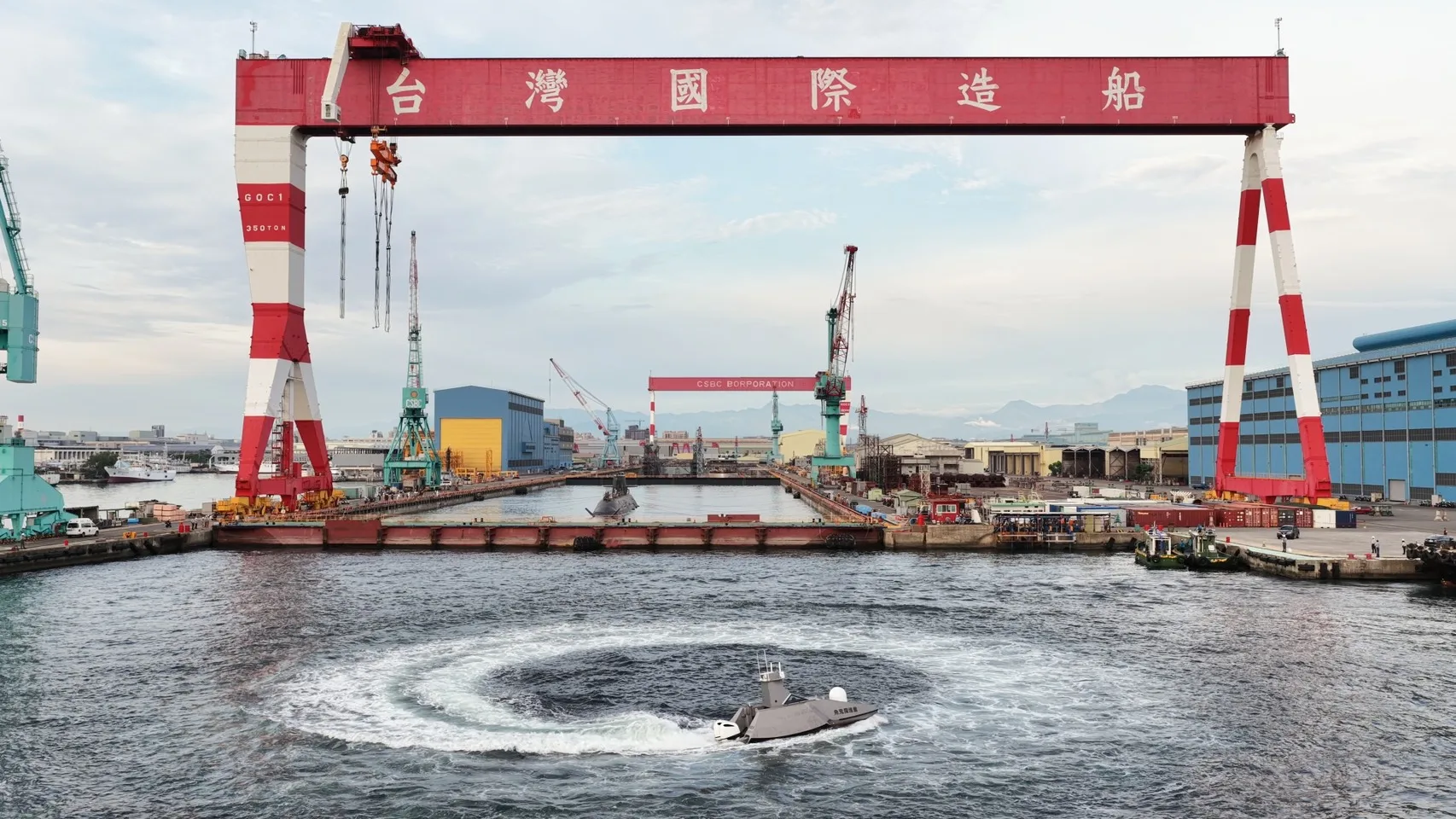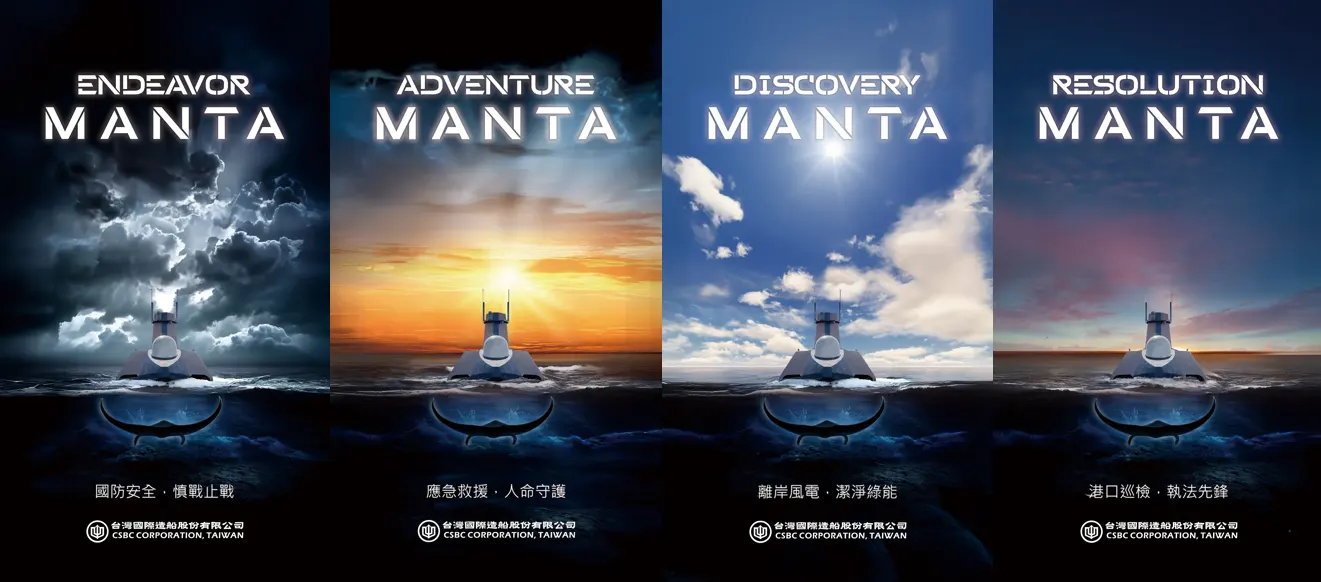CSBC's "Endeavor Manta" Becomes Taiwan's First Unmanned Surface Vessel Certified by Classification Society
CSBC's "Endeavor Manta" Becomes Taiwan's First Unmanned Surface Vessel Certified by Classification Society

Taiwan, a small island surrounded by the sea and situated on the front line of a geopolitically sensitive region, sees the development of domestically produced unmanned vehicles as not only a critical strategy to strengthen national defense autonomy but also the most effective way to leverage its inherent geographic advantages. The indigenously developed unmanned surface vessel (USV), Endeavor Manta, was specifically engineered to operate effectively in the highly challenging and rapidly changing environment of the Taiwan Strait. Following its public unveiling on March 25th this year, CSBC Corporation (CSBC) has continued working closely with the American Bureau of Shipping (ABS). After several months of technical discussions, the Endeavor Manta received Approval in Principle (AIP) from ABS on September 5th. At the core of this certification lies its sophisticated and complex remote-control system; The achievement of AIP signifies that the vessel's preliminary design and construction meet ABS safety standards, marking an important milestone. It underscores Taiwan's significant progress in indigenous shipbuilding capabilities and highlights the close collaboration among stakeholders in setting safety benchmarks for emerging maritime technologies.
The Endeavor Manta measures 8.6 meters in length and 3.7 meters in breadth, powered by two outboard engines that enable a maximum speed of over 35 knots. Its distinctive trimaran hull design enhances stability and seaworthiness under harsh sea conditions. Equipped with an advanced remote-control system, the vessel is capable of executing a wide range of critical missions, including humanitarian aid, maritime law enforcement, facility inspection, data collection, convoy escort, cargo transport, and environmental monitoring. Through its modular payload design, the vessel can be adapted to mission-specific requirements, significantly reducing personnel exposure to risk and lowering potential operational costs. These applications are particularly valuable in supporting Taiwan's offshore engineering and wind energy industries. Moreover, in situations requiring emergency mobilization, the Endeavor Manta also offers considerable operational potential as an immediate defense asset. CSBC has further outlined plans for an expanded Manta-series USV fleet (see figure below) to address these diverse mission needs.

The AIP represents a critical preliminary certification stage in the design and construction process, signifying that the classification society has validated the technical feasibility of the concept design and confirmed its compliance with applicable regulations. Its core purpose is to reduce risk, ensure the correctness of the R&D direction, and pave the way for subsequent design and construction. The review scope covers the design concept and proposals, technical systems, calculations and analyses, applicable regulations and standards, as well as risk assessments.
Given that the Endeavor Manta operates through a remote-control communication module, with personnel managing communications and navigation from a shore-based console, ABS adopted its "Requirements for Autonomous and Remote Control Functions" released in October 2024 as the basis for the AIP review. Both parties set the goal of obtaining the "REMOTE-CON (RO1)" notation. The assessment specifically addressed Category III—the highest risk level—focusing on navigation, maneuvering, and propulsion systems, as these are critical to vessel safety. Any failure could lead to severe consequences, including threats to other vessels and the environment. This underscores that remote-control operations must incorporate robust safety measures and comprehensive risk management strategies. The successful review demonstrates that the Endeavor Manta meets these standards and further highlights the importance of cross-sector collaboration among software providers, vessel operators, shipbuilders, and the classification society.
CSBC's Endeavor Manta has received AIP from ABS, validating the safe use of its existing technologies and marking a new milestone for Taiwan's USV development. This achievement lays a solid foundation for both commercial and defense applications. CSBC also recognizes that AIP is not the end point of USV certification but rather the beginning. Complementing classification society approvals are the regulations of the flag state, including those set forth by the Maritime Port Bureau and Taiwan International Ports Corporation. As a pioneer in USV certification, CSBC will continue to work closely with government authorities and the classification society to jointly establish a comprehensive regulatory framework for unmanned vessels.
CSBC will also continue to advance the development of smart vessels by upgrading existing systems to enable broader applications, such as unmanned fleet control and mixed-reality integration.
